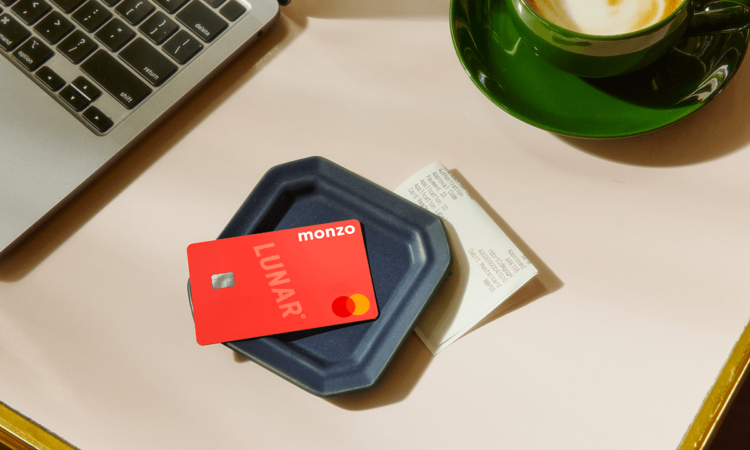
It has emerged that Gen Z favourite Monzo, one of the UK’s most celebrated and popular neobanks, is in acquisition talks with Lunar, a Danish challenger bank famed for Hollywood actor Will Ferrell being an investor and star of its advertising.
Monzo, valued at $4.5 billion in 2021, is holding “preliminary” discussions with Lunar, thought to be valued at around $300m, over the terms of the deal, according to a report by Bloomberg.
The report said the UK challenger bank is also looking at other deals across Europe, as it looks to drive growth across the continent, much like its rival Revolut.
Monzo is now a top ten UK bank in customer number terms, boasting over seven million of them, many of them youngsters fed up with stuffy incumbents.
Like its rival disruptors, Monzo is eyeing up new revenue streams, including M&A activity (as well as diversifying into areas like lending and subscriptions), to grow revenues beyond interchange fees, as it looks to turn its first full-year profit.
More neobank deals to come
Given the current economic backdrop of rate hikes and investor caution which is thwarting fundraising, Monzo is not the only neobank hunting out deals, analysts say.
Rudy Yang, a fintech analyst, PitchBook, said: ”The higher scarcity of capital is likely influencing the decisions of neobanks to explore acquisitions.
“Some M&A deals in the fintech space have been driven by companies running short on runway, while others have been influenced by lower valuations.
“We expect consolidation will continue to pick up this year, especially in consumer fintech sectors like neobanking.”
Examples of recent neobank deals include UK challenger bank Starling Bank buying Fleet Mortgages; UK rival neobank Tandem Bank snapping up money-sharing app Loop Money; and US bank for Black and Latino individuals, Greenwood, acquiring fellow challenger Kinly.
German neobank N26, meanwhile, has publicly said it’s on the hunt for acquisition targets.
Monzo and Luna similar propositions
Monzo and Lunar, on the face of it, have similar propositions, so a tie-up would make sense from a pure-play expansion perspective.
Both offer retail and business banking services, are strong domestically, loved by younger customers, and want to grow internationally- Monzo beyond the UK and US; Lunar beyond Denmark, Sweden and Norway.
Thomas Jensen, CEO, of Fintech Copenhagen, the Danish innovation fintech hub, says: “Strategically I think Lunar has chosen to go deeper in the Nordic market with a broader offering and in that way I think they are more similar to Monzo than for example Revolut.
“Lunar has a vision of becoming an all-encompassing financial platform for their customers.”
Yang said: “The acquisition could help both parties expand their product suites and accelerate their growth in new markets, which would’ve likely been more difficult to do on their own.
“We believe these strategic focuses currently reflect those of many other neobanks.”
This thought is echoed by Adam Davis, associate partner, Bain & Company, who says it is a “significant risk” for a neobank to launch into a new market where it does not have a brand presence.
For Monzo, teaming up with Lunar means it could ride on Lunar’s European banking licence coattails, sidestepping a potentially long-winded application process.
That said, there are marked differences: Lunar, also founded in 2015, for example, has just 650,000 customers, dwarfed by Monzo’s 7.4 million.
Deal could mean quid pro quo
Stephen Walker, a fintech analyst at GlobalData, says there could be a quid pro quo, with each learning from the other.
Walker says that “Lunar can learn a lot from Monzo to get scale” while, on the flip-side, Walker says Lunar can help school Monzo in lending.
Lending is a difficult nut to crack, requiring a large and diversified balance sheet, but done right can prove fertile ground for neobanks.
Monzo has hitherto launched a suite of lending products and is likely to want to push further into this area.
But Lunar has a lending experience of a different sort, having acquired the $1bn-valued lending business Lendify in 2021 for €100 billion.
Lunar CEO Villum Klausen said the acquisition of Lendify would allow Lunar to put its “massive deposit surplus” to work at limited risk.
Analysts say that Lunar’s deep-rooted relationship with its business lenders is an experience that Monzo could tap into.
Separate brands to be kept
In light of the acquisition, it seems the Monzo and Lunar brands would be kept in each market given their high respective brand recognition.
In London, Monzo’s popularity is such that it’s used as a verb and “I will Monzo you” has become money transfer slang in the capital.
Likewise, Jensen says: “Lunar has a strong brand, especially in Denmark but also the rest of the Nordics – Norway and Sweden where they are active. They have spent considerable efforts building a very strong brand in both consumer and lately also business banking for SMEs.”
Analysts sceptical about deal
One analyst says Lunar is simply an “extension” of Monzo’s core account-based business.
He says: “The question is, does Monzo want to continue with an extension of its core business overseas?
“It wasn’t the play I thought they would make necessarily. If you look at how good the Fleet acquisition has been for Starling. A digital-first mortgage business is an interesting play for any new bank in terms of getting their credit base up.”
He adds: “I think the most underserved area of financial services is SMEs.”
Amir Nooriala, managing partner, Aurias, the private equity firm, said: “I find the Monzo Lunar merger interesting but feel it’s not a great fit.
“For me, a better fit would be Monzo buying Tide, as a way of dispersing their deposits into profitable business loans.”






